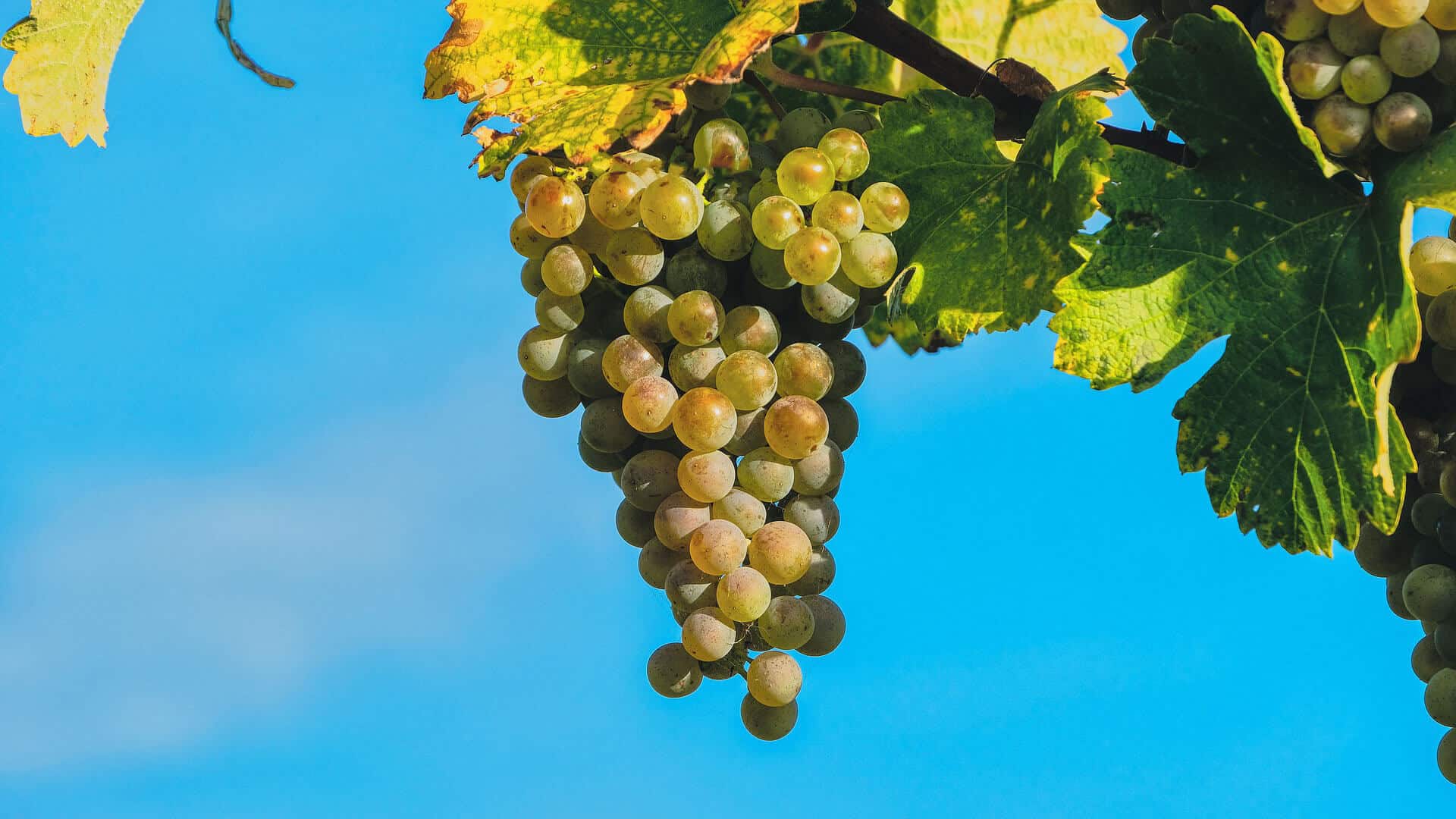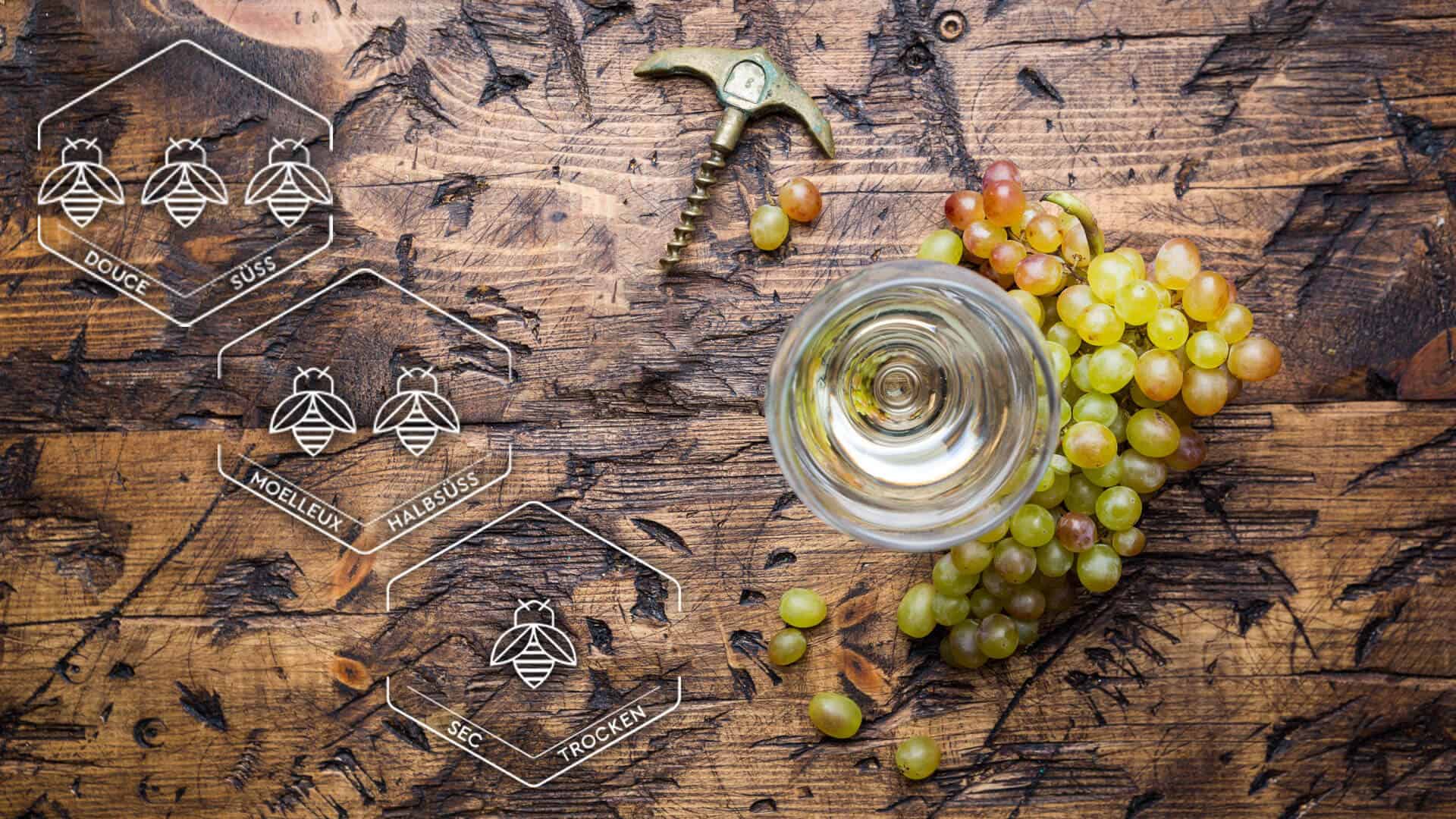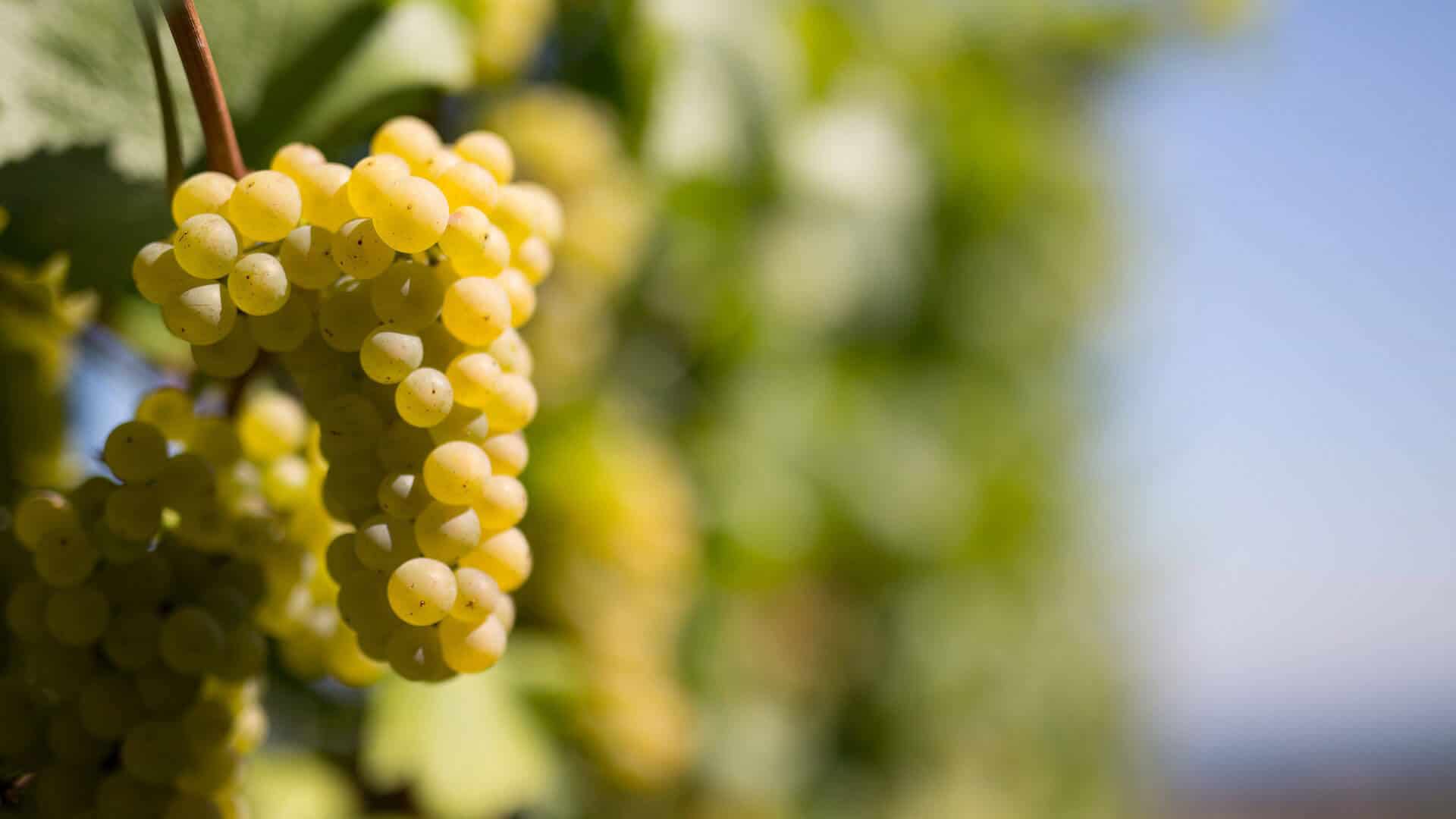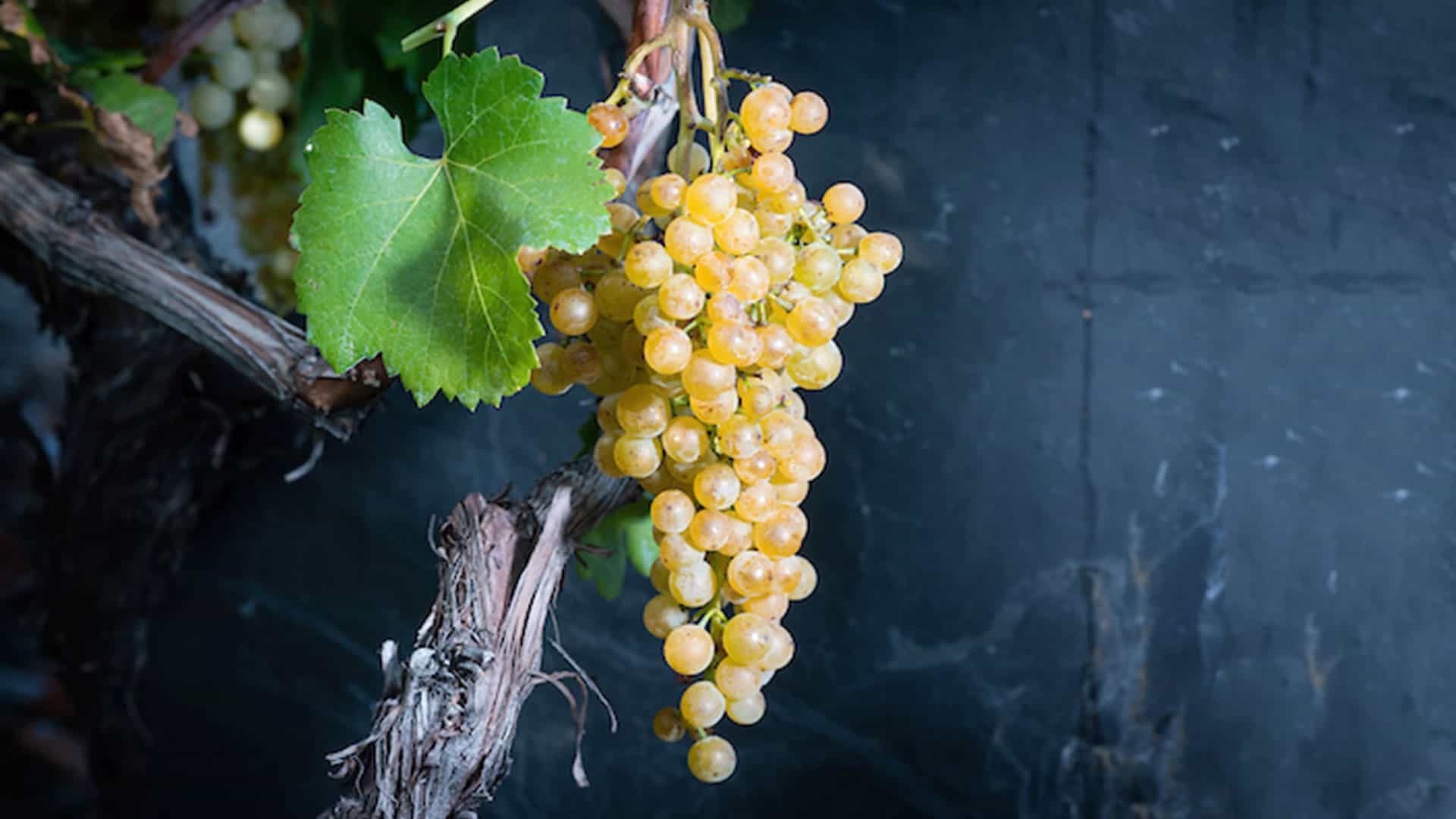Introduction: Amigne AOC Valais white wines
This wine is of course just one of many excellent Valais white wines that we have in our range. In our online shop you will also find a large selection of rosé wines, red wines, sparkling wines and digestifs.
If you are looking for a gift, we recommend the various tasting boxes from our gift service, for example, or a gift voucher, which gives the recipient a free choice in our online shop.
The most important facts at a glance
Amigne is an ancient, autochthonous grape variety and grows exclusively in Valais. This is the “home grape” of the municipality of Vétroz, which lies twelve kilometres south of Sion. This is where 70 percent of the grapes grow, the rest in neighbouring communities. Today, the vine is cultivated on 43 hectares and produces around 100,000 litres of wine per year.

The Amigne de Vétroz is irrevocably linked to bees. Amigne is characterised by its aromas of orange and mandarin and its tangy acidity. Above all, however, it covers the entire spectrum of wine types, from bone-dry to noble sweet. And that’s where the bees come in. So that consumers know what type of wine they are dealing with, the winegrowers of Vétroz have had a logo protected for their products: One bee on the bottle characterises a dry wine, two bees mean semi-sweet, three bees stand for a sweet wine.

The word amigne is derived from “vitis amoena”, which means pleasant vine in Latin. It is a direct descendant of the Upper Valais grape Gwäss. This was very common in the Middle Ages. No fewer than 80 grape varieties throughout Europe have developed from it through natural cross-breeding (e.g. Chardonnay, Gamay, Riesling, etc.).
Origin, origins & significance of the Amigne grape variety
It is believed that the grapes were introduced to Switzerland by the Romans. However, the variety was first mentioned in 1878 as part of an ampelographic exhibition in Geneva.

It has been cultivated in Valais since the 16th century. Varen and its inhabitants are culturally and historically linked to the Gwäss. Gwäss is still cultivated in the Upper Valais. According to the latest genetic research, it is the oldest grape variety known by name in the world.
Characteristics of the Amigne white wine variety: Growth, maturity and yield
The grape variety is one of the late-ripening grape varieties, ripening around 30 days after the Fendant. The vines of the Amigne grape variety require special attention from the winegrower, as this grape variety is thin-skinned and sensitive.

Thanks to the loose, well-ventilated berries, the grapes can hang on the vine for a long time. Spoiled by the intense sunshine of the late autumn, which is typical of Valais, the winegrowers are able to produce a wonderful, complex and almost oriental sweet wine that becomes increasingly noble over time thanks to its great ageing potential.
Flavour profile of Amigne: Intense aromas, well-integrated, tangy acidity
The flavour profile of the Amigne grape is characterised by distinctive aromas and a wide range of fruity notes on the palate. These include citrus fruits such as lemons and oranges, but also notes of exotic fruits such as pineapple, mandarins, mango and apricots.

The floral nuances are dominated by white flowers such as jasmine and acacia, which lend the wine an elegant and fragrant dimension. The sweetness of honey can often be found on the palate, especially in the noble sweet varieties.
Amigne and food: The best combinations
Depending on the flavour, Amigne with its complex aromas is an excellent accompaniment to a fondue or dishes of hearty roast poultry.
However, this white wine is just as ideal with light starters, salads and seafood as it is with dishes from Asian cuisine or dishes with foie gras.
Dry or slightly sweet versions served with a poultry pâté are also a fantastic composition. And the dessert wines enhance any type of fruity dessert, such as a tartelette.
Interesting facts about the Amigne grape
Here is an overview of important facts about the Amigne grape variety.
Do the wines in the Mathier online shop have an article number?
The wines in the Mathier online store are marked internally with an article number. However, you do not need this to place an order.
How long can Amigne wines be stored?
Whether sweet or dry, Amigne wines have great ageing potential. Great vintages are still outstanding after several decades!

